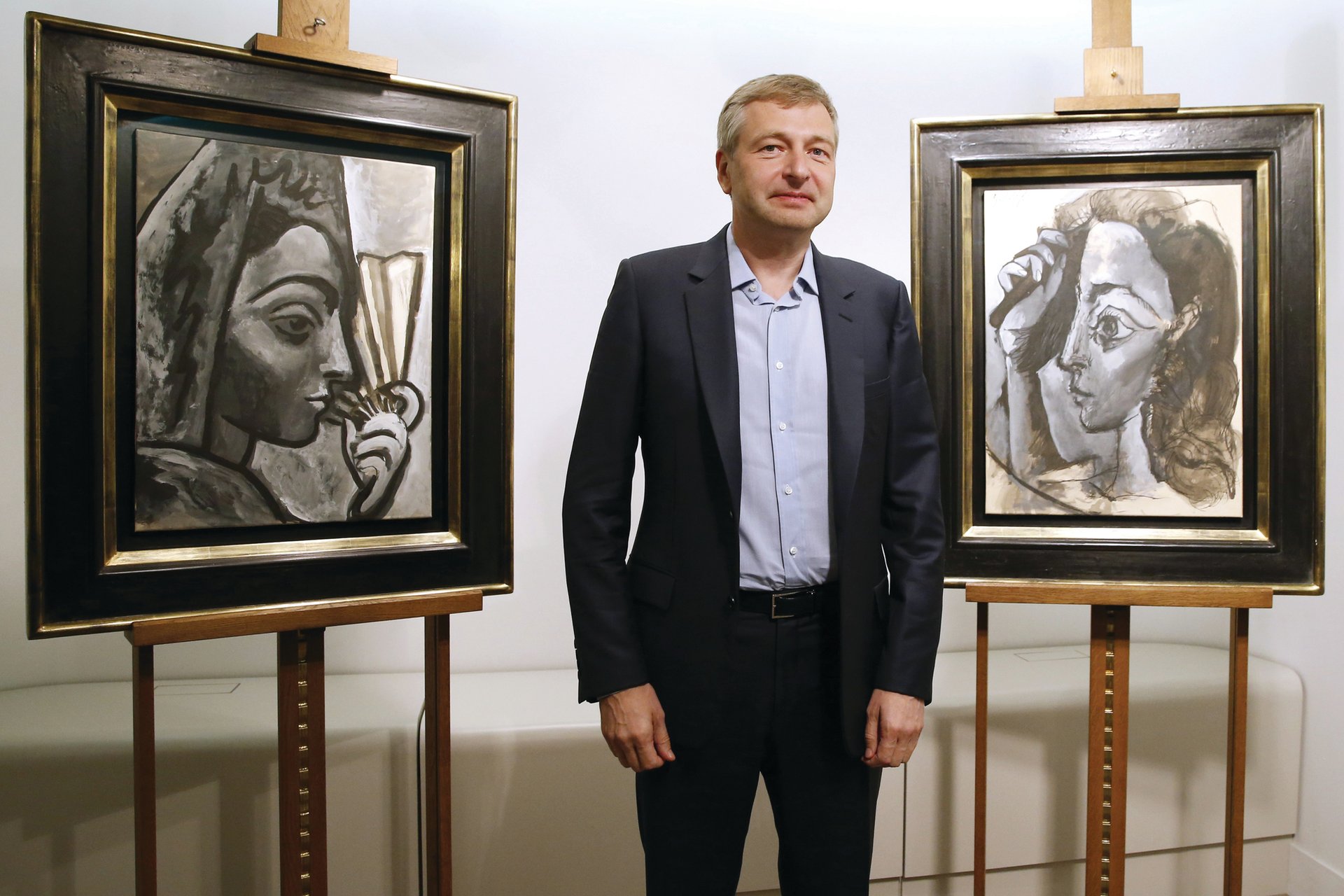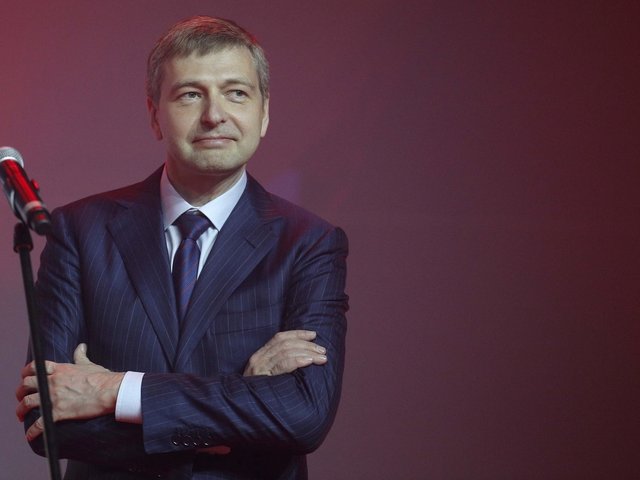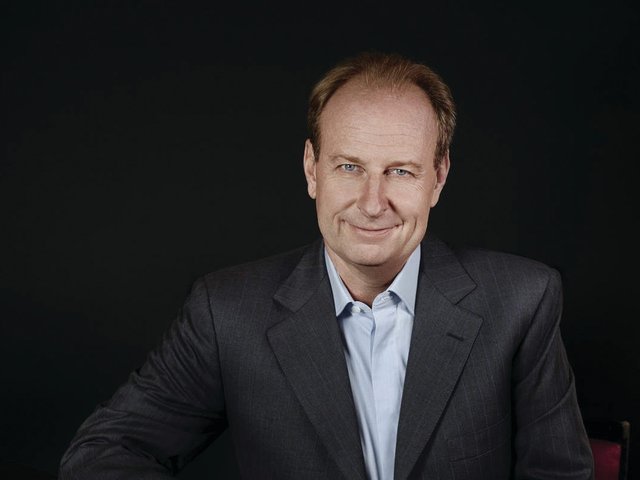The Swiss businessman Yves Bouvier, who made his fortune shipping, selling and storing art, is battling on several fronts to preserve his reputation and business. He is fighting criminal charges in Monaco and Paris, and a civil lawsuit in Singapore—while defending the freeports system.
Interviewed by The Art Newspaper in Paris and Geneva, Bouvier says: “I have every confidence I shall be cleared on all charges. But in the meantime, I must also deal with a campaign aimed at destroying my name.” He says that he is ready to “fully co-operate” with the French authorities.
The latest bad news came from Paris on 6 July, when Bouvier’s friend and business partner, Olivier Thomas, was charged with fraud, breach of contract and possession of stolen goods by the judge leading the investigation into around 70 works reported stolen from storage rented by Jacqueline Picasso’s daughter, Catherine Hutin-Blay. The works included two portraits of Jacqueline by Picasso, Hutin-Blay’s stepfather. These works and sketches by the artist were sold by Bouvier to the Monaco-based Russian billionaire Dmitry Rybolovlev.
Puzzle of Picasso portraits Bouvier was charged a year ago with possession of stolen goods by the French judge. He was released on bail of €27m—the price Rybolovlev paid him in 2013 for the two portraits, which were reported missing from a storage facility in Gennevilliers, near Paris. Rybolovlev also bought in good faith 58 pages from three of Picasso’s sketchbooks, which were also reported stolen.
In 2007, Catherine Hutin-Blay commissioned Olivier Thomas, an art dealer and shipper, to sell Picasso’s former home, Notre-Dame-de-Vie. Thomas removed the collection and furniture from the artist’s last home and studio on the French Riviera and stored part of it in Gennevilliers, using the facilities of Bouvier’s subsidiary, Art Transit. When Thomas was first arrested in Paris in May 2015, he claimed he knew nothing of the portraits of Jacqueline by Picasso or the sketches. But police found reproductions of them on Thomas’s computer. His lawyer says he actually meant that the paintings and drawings were not in Picasso’s house at the time of the removal.
This account is contradicted by a restorer who worked for Bouvier’s family firm, Natural Le Coultre. He testified that he was asked to work on six paintings by Picasso, in Gennevilliers and in Geneva. He provided photographs, including images of the two portraits of Jacqueline. His testimony is challenged by Thomas’s attorney, Jean-Marc Fedida, who says the restorer contradicted himself and only mentioned the photographs in his second hearing.
Bouvier denies that Thomas played any role in the transactions, maintaining that he bought the 70 or so works from a late Parisian dealer, Jean-François Aittouarès. However, the Aittouarès gallery found no trace of the sale.
Bouvier claims the investigation will show that he paid Aittouarès for the works. He still holds half a dozen of these pieces, which “are at the disposal of French justice”, with which he is “ready to fully co-operate”.

Aside from this case, Bouvier is still facing charges for fraud and money-laundering in Monaco, where Rybolovlev filed a complaint against him and where he had to pay another €10m bail. Bouvier now has to deal with a civil lawsuit in Singapore, where he has declared residency.
Rybolovlev accuses Bouvier of having taken €1bn in “undue profits” on paintings he bought from the Swiss businessman for a total of €2bn over 12 years. Bouvier has pleaded that the Singapore courts are not competent and wants the procedure transferred to Geneva.
In March, a judge in Singapore dismissed the request, stating that a trial in Bouvier’s hometown would cause “grave prejudice” to the plaintiff. In July, Bouvier, who denies that he has any “influence on the legal system in Geneva”, was granted the right to appeal. “Swiss justice was competent for the first contracts we signed,” he says. Bouvier says he signed contracts with Rybolovlev’s representative for the first four paintings and considers that they implicitly covered around 30 transactions that followed.
These contracts list his Hong Kong company MEI-Invest as “the seller”, mentioning a commission of 2%. Rybolovlev says that these fees, amounting to $40m, represented his payment as an agent, which means he could not claim a profit. Bouvier maintains that he was acting as a dealer, “free to establish his own benefit”. He says: “Obviously, 2% could only cover the closing costs, which are usually higher” and include provision of legal documents, copies of the works, restoration and shipping to Singapore, where the Russian collector had storage space in the freeport opened by Bouvier in 2010.
King of the freeports With the huge proceeds he was getting from the sales, Bouvier created another freeport in Luxembourg in 2014 with Thomas and a French art dealer, Jean-Marc Peretti. There is no suggestion of any wrongdoing by Peretti. This led to Bouvier being dubbed the “king of freeports”. Bouvier says: “My family holding only owns 5% of the freeport in Geneva. I do not interfere with the management, which is taken care of by the [Swiss] state, which owns 85%. I rent part of the storage, but I have no access to the safes and the data. And my art transactions and our shipping activities have always been covered by separate bodies. There is no such thing as a Bouvier system!”
During a tour of the huge warehouses in Geneva, Bouvier says that these places are already “under strict control”. He says: “If you want to hide an artwork, this is the last place you want to be; you can choose a vault in any bank, where you will find no control at all”.
Timeline: Bouvier’s legal battles January 2015
The family trust associated with Russian billionaire Dmitry Rybolovlev, the owner of AS Monaco football club, files a criminal complaint against Yves Bouvier. He is accused of overcharging Rybolovlev by $1bn on the sale of 37 works of art between 2003 and 2014—allegations Bouvier vigorously denies.
February 2015
Bouvier is arrested in Monaco on suspicion of fraud and complicity in money-laundering. He is released from custody on €10m bail.
March 2015
Two companies linked to Rybolovlev file a civil suit against Bouvier in Singapore. The Mareva injunction prevents Bouvier from disposing of any personal assets worth up to $500m.
April 2015
Bouvier temporarily steps down from running Luxembourg’s freeport to focus on legal cases.
June 2015
Two companies linked to Rybolovlev file a civil suit against Bouvier in Hong Kong.
July 2015
Bouvier files a request to annul the Monaco proceedings, citing “procedural irregularities” and questioning the “systematic bias” of investigators.
August 2015
Singapore’s court of appeal unfreezes Bouvier’s assets.
September 2015
Bouvier faces charges of illicit possession after being questioned by a French judge investigating the case of the alleged theft of 60 works by Picasso. Bouvier denies any wrongdoing.
November 2015
A Monaco appeals court rejects Bouvier’s bid to quash the case.
March 2016
A Singapore court rules that the suit filed in March 2015 should go ahead.



